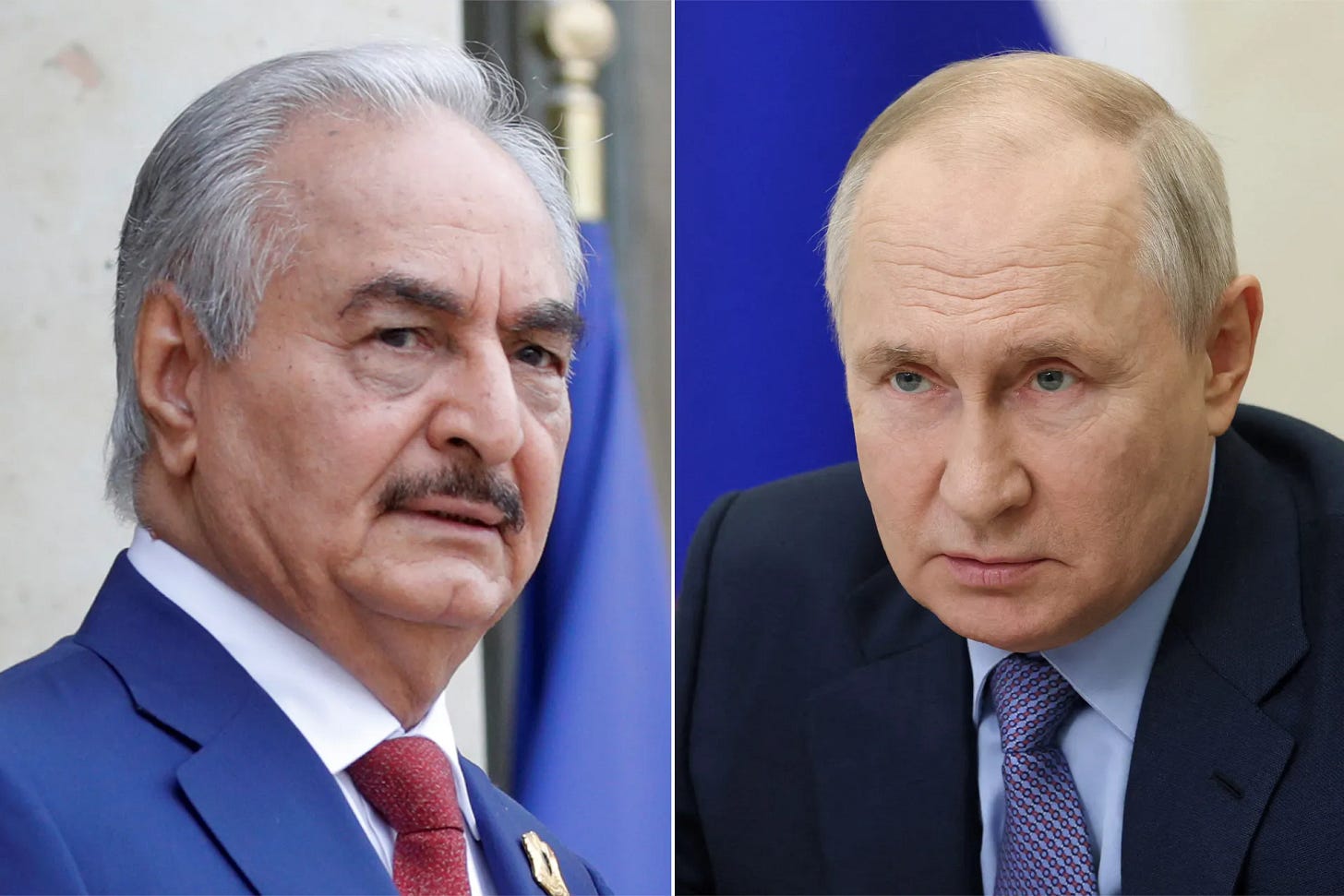Russian Recalibration: The Implications of Assad’s Fall for Libya
If negotiations with Haftar over ports, energy, and bases remain unfruitful, it may prompt Russia to support a different leader more aligned with its interests if it is offered some concessions.
In the aftermath of former Syrian President Bashar Assad's ousting, Russia wasted no time in its military disengagement from Syria, redirecting its assets –troops, arms, and advanced weapons systems– to Libya. The North African country is critical to Russia's interests, particularly in terms of energy resources and its strategic positioning vis-à-vis Europe. Both Syria and Libya saw extensive Russian engagement aimed at advancing Russia’s broader interests in the Sahel region. With Assad's fall, an intensified Russian focus on Libya could reshape the geopolitical landscape by uniting regional powers seeking to preserve regime stability against Western interests. This alignment may lead to increased proxy conflicts in Libya over energy and strategic trade routes, potentially reshaping global energy dynamics.
Russia in post-Arab Spring Syria and Libya
This swift move from Syria to Libya was to be expected, as both countries have been key recipients of Russia’s emergence as a significant counter-revolutionary force in the aftermath of the Arab Spring. Aiming to bolster authoritarian regimes against Western-backed opposition, particularly NATO, Moscow can be credited with extending the longevity of both Assad and Haftar's rule. In Libya, Russia has spent nearly a decade investing in Khalifa Haftar, the leader of the Libyan National Army (LNA) in the east. Their relationship is primarily based on military support and cooperation, including the provision of Wagner Group mercenaries and weaponry transmitted to the Sahel region, an important arena for Russian power assertion. Another major interest Russia has in Libya is energy, as Libya holds the largest known oil reserves on the continent. Russia sees this as an opportunity to leverage energy resources against the West, particularly in the wake of Western sanctions that have reduced Russian oil sales to Europe to a record low; the European Union’s import of oil and petroleum products from Russia this past year was the lowest since Russia’s invasion of Ukraine in 2021.
In contrast, Russia’s conduct in Syria was much more extensive, effectively solidifying its power in the region. Since its military intervention in 2015, which shifted the course of the Syrian Civil War in Assad's favour, Russia has reinforced its presence by establishing key strategic military bases, including the Hmeimim airbase and the Tartus naval facility.
Assad-Haftar Ties
Keep reading with a 7-day free trial
Subscribe to MENA Unleashed to keep reading this post and get 7 days of free access to the full post archives.




